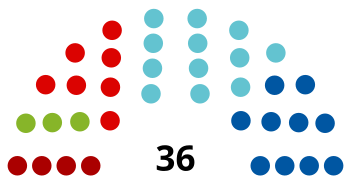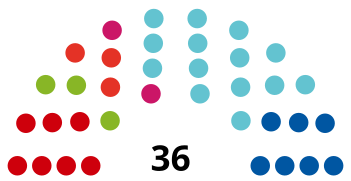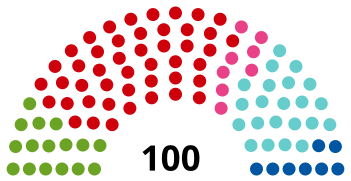| This article is part of a series on the |
| Politics of Austria |
|---|
 |
The Austrian provincial parliaments are the unicameral legislatures of the nine Austrian provinces, according to the Constitution of Austria deciding in all matters unless explicitly subject of federal legislation. On federal level the provincial parliaments are represented in the Federal Council.
Nine political parties are represented in the provincial parliaments, of which six are represented in more than one. Currently, the Austrian People's Party (ÖVP), Social Democratic Party of Austria (SPÖ), and Freedom Party of Austria (FPÖ) are represented in all nine provincial parliaments. The Greens are represented in eight, and NEOS – The New Austria (NEOS) is represented in six. Also, the leftist-socialist Communist Party (KPÖ) is represented in two parliaments, while the fiscal-liberal and regionalist Team Carinthia, the populist MFG and the anti-corruption regionalist Citizens' Forum (FRITZ), are represented in one parliament each.















